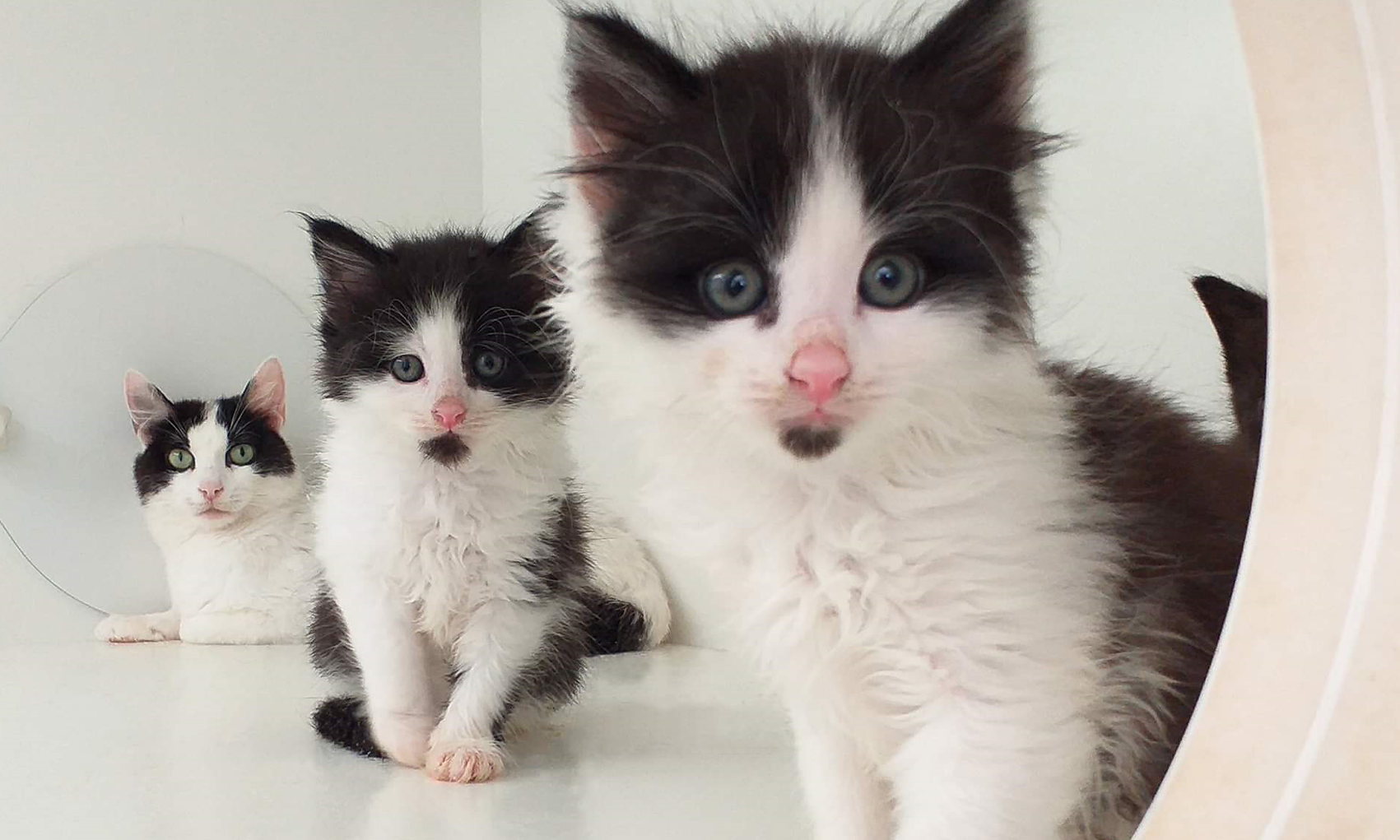
Anyone who's anyone in the world of animal care will tell you: 'responsible pet owners neuter their pets'... It's that simple. We have also created an informative leaflets to help you understand why it's so important. There's one for girl cats and one for boy cats.
Please visit the International Cat Care website for more information about the importance of neutering. Feline Care does not routinely fund private neutering but please get in touch if you have issues with getting your cat to the vet in case we can help with transport or arrangements. If paying for neutering is an issue, Cats Protection offer financial help: 03000 121212.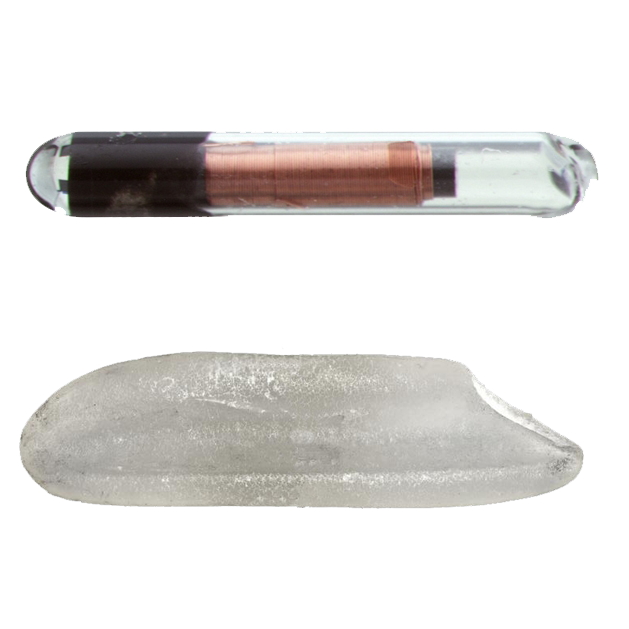
We cannot stress enough the importance of microchipping. We see so many cases of owners being reunited with lost cats thanks to their microchips that we know it is worth every penny.Poor young Jester was caught in one of our traps while we were catching up a colony of feral cats for neutering. We could see he wasn't feral and assumed he must be a local pet who was exploring the industrial site. Thanks to his microchip we were able to trace his owners... Jester had travelled over 100 miles on the back of a delivery lorry! We offer microchipping to pet owners at a cost of £5.00 per cat. The tiny microchip smaller than a grain of rice takes seconds to implant and your details will be registered with PetTrac, one of the largest UK microchip databases. Please get in touch to chip your pets.
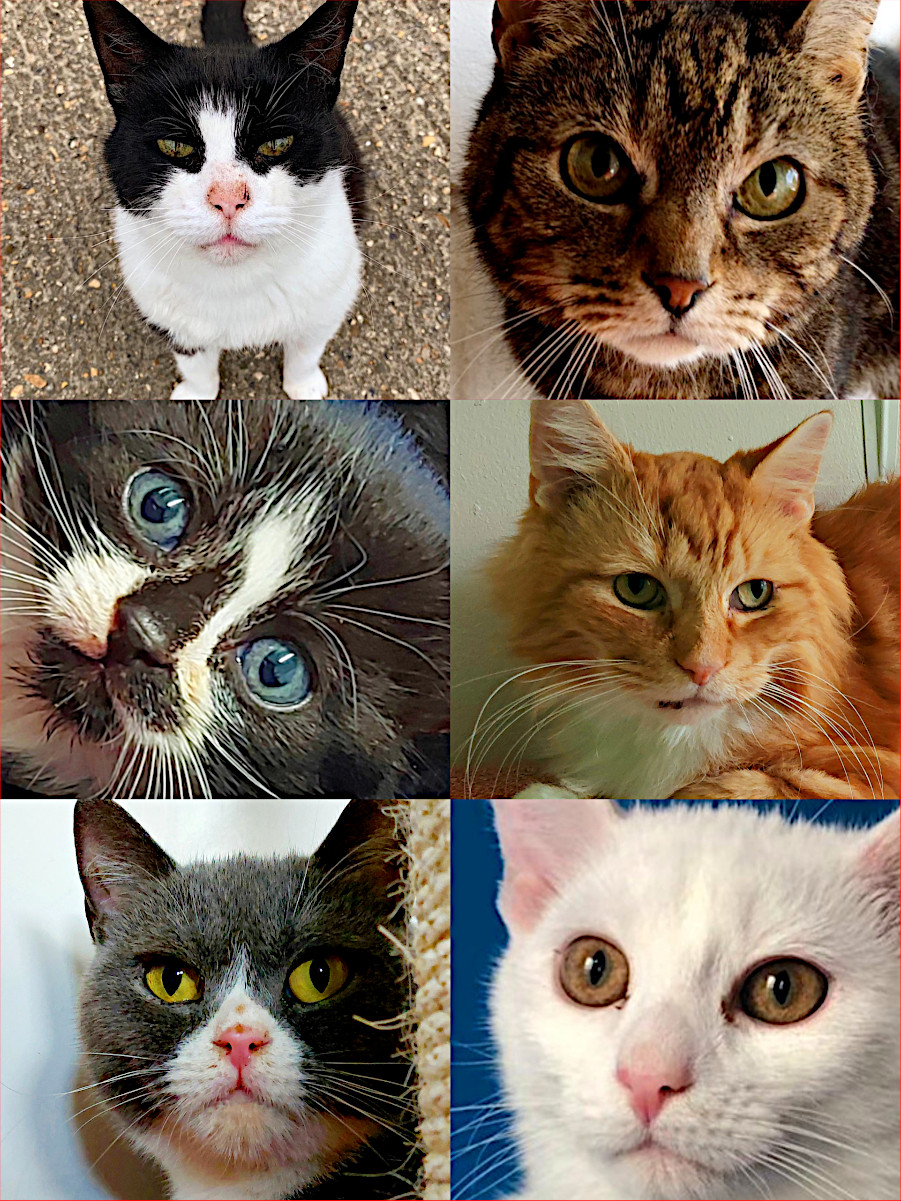
Due to the nature of our facility and high demand we have limited spaces
for incoming cats. We try our hardest to help as many cats as we can but
because we offer shelter to 'less popular' cats we do not home at as fast a pace as normal
cat rescues.If you have a cat you are looking to re-home then please
ring +44 7943 776682 so we can take a record and establish how we can help.We do not
operate a standard waiting list for places here and cats are admitted on a priority basis
depending on many factors.
As in many cases we cannot admit the cat immediately we do advise all callers to ring other
cat rescues to increase your chances of finding a home quickly.
Please visit www.catchat.org/adoption
for a comprehensive list of local and national cat rescues, listed by county.
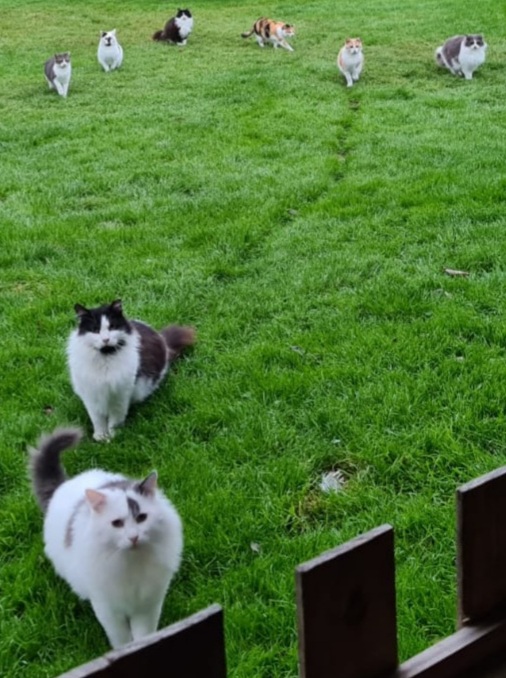
A feral cat is, very simply, a domestic cat who is not used to people. To us that is not enough reason to condemn them, kill them or ignore them.Whether feral or friendly we do our best to improve their lives. Most of the 'feral' cases we are contacted about are individual entire males who are bullying domesticated cats or spraying. These are also the most difficult cases because an emotional owner is always involved who wants the 'feral' removed immediately and, with limited spaces available here, this is not often possible. Neutering the offending cat is normally the solution as once his testosterone has dropped off his hormonal need to fight is also removed. This process takes time and sadly many so called 'cat lovers' see strays as having less rights to live than their own moggie and would rather see it die than disrupt their cats routine for a month or so. Persuading a hysterical owner that we have to act in the best interest of cats (not just their cat!) is often easier said than done. The even sadder side to these problem is that as a general rule these bullying toms (known as 'despots') are not in fact 'feral' at all and are simply un-neutered males who have reached sexual maturity and strayed to find females. Living rough they have then become wary of humans over time but still brave enough to sneak in through a cat flap, something a feral-born cat would never do! If you need help with a bullying tom then please contact us or your nearest cat rescue organisation.
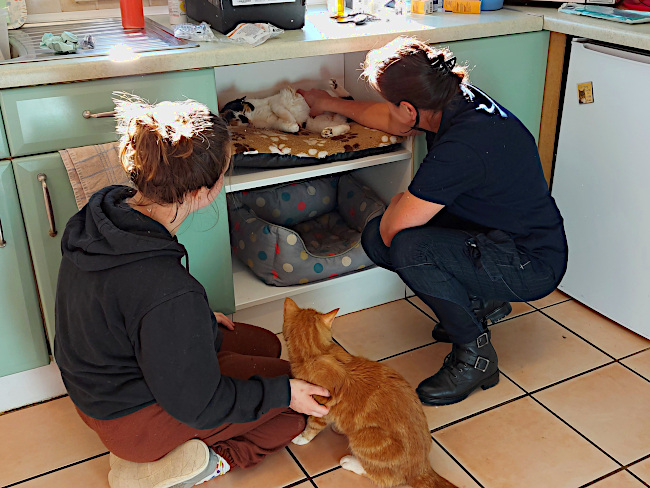
All our cats are visited in their own bed wherever possible as stress plays such a big
impact on cat health.
All day to day care is with
Cherry Tree Vets Diss &
Harleston
.
Backup is provided when required by
Breckland Vets
,
PACT animal sanctuary's in-house
veterinary unit,
Knotts Yard Veterinary
Practice
and
Wymondham Vets.
Click on a vets name to view their website.
A big THANK YOU to all out vets.
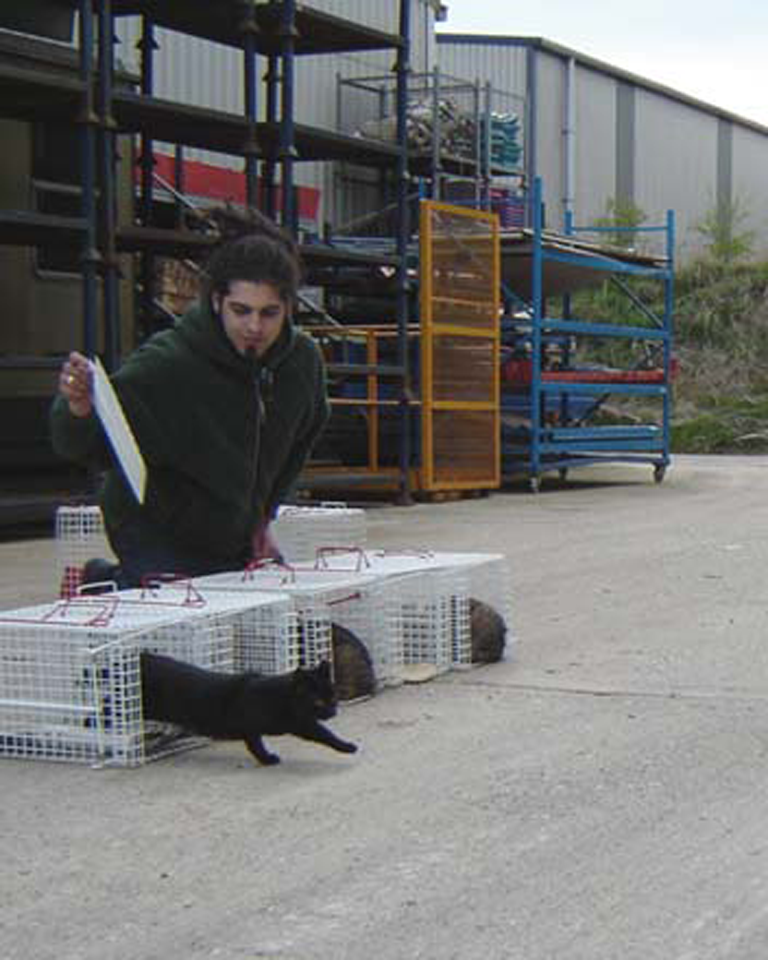
We believe good feral cat management is of benefit to both humans and cats. The fact that cats are choosing to live and breed in an area means there must be a reliable source of food for them, usually provided by humans unintentionally. Cats breed at an astonishing rate and within just a year colony numbers can easily triple. Breeding colonies tend to be riddled with health issues as natural population controls kick in. Kittens die through infections and inbreeding and adults in the wild have a life expectancy of only 4-5 years although we believe this is less in un-supported colonies. Most pest controllers will advise you that removing (or shooting) cats is the way to keep feral colony populations down, which of course gets numbers down immediately. However, long term the pest controller knows full well that with a food source present the area will become a vacuum and new cats will move into the territory, thus creating future or contract work. We operate a Trap, Neuter & Return (TNR) programme for the control of cats on local farms, industrial areas and wherever feral cats are present. TNR is the safest, kindest and most economic way to manage feral cats. The basic aim is to create a healthy managed colony which, as they catch for both food and sport, will give far more effective pest control than an unneutered colony. A colony can only increase if others move in and it is rare for an established neutered colony to allow this to happen. As the colony die off over the years we can discuss options for 'restocking' the area with new neutered ferals in need of homes. Some farms and businesses that have TNR'd cat colonies will re-allocate and reduce their pest control budget to just cat food and worming medication! Please get in touch if you need our help with TNR.
We DO NOT and WILL NOT respond to callers threatening to kill cats if we do not take them in. If you threaten to kill a cat you do so on your own conscience, not ours, and it is disgraceful to put that guilt onto people who are already trying their hardest. There is ALWAYS another solution.